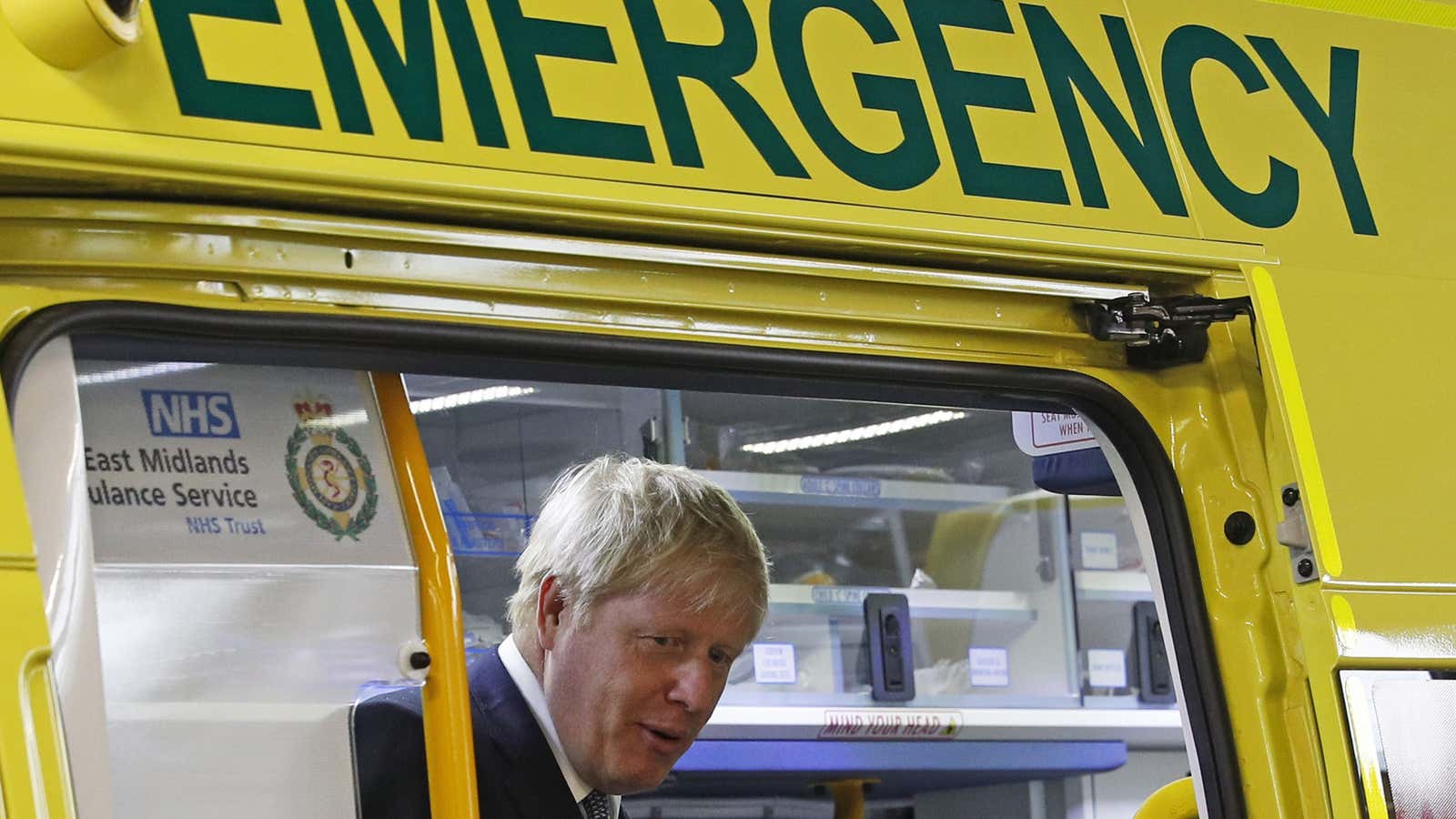A Brexit preparation document leaked to the Sunday Times (paywall) reveals a government bracing for the worst. The leak comes as prime minister Boris Johnson doubles down on his vow to leave the European Union on Oct. 31 with or without a deal.
The document, which appears to have been written just this month by the Cabinet Office and marked “official-sensitive,” lists key planning assumptions and details the likely repercussions of a no-deal Brexit. Among them: fuel, food, and medicine shortages, rising costs of social care, significant port disruptions, and a hard border with Ireland.
“This is not Project Fear—this is the most realistic assessment of what the public face with no deal. These are likely, basic, reasonable scenarios—not the worst case,” a senior government source told the Sunday Times.
The report is one of the first times that the government has shown that it assumes a no-deal Brexit. And, worryingly, the document states that both the public and businesses are unprepared for a no-deal scenario, in part because of “EU Exit fatigue” following the extension of the divorce date from March to Oct. 31.
Here are some of the ways they anticipate a hard Brexit will affect British industries and people.
Channel Ports and Border Checks
- France will impose EU controls on UK goods immediately. Many British supply trucks will be unprepared for French customs, which could reduce the number of vehicles passing through to 40%-60% of current levels within one day. Disruptions could last three months or more, which could have a “catastrophic” impact on the British economy.
- Increased immigration checks at borders will lead to delays at St Pancras (Eurostar), Eurotunnel, Dover, and EU airports.
Northern Ireland
- The government expects a hard border to return in Ireland, which will severely disrupt trade and may lead to protests, job losses, and the rise of an illegal economy.
Food and Drugs
- Six months of significant disruption to medicine supply chains is expected.
- Some fresh food supply will decrease. There will not be an overall shortage of food, but availability and choice will be limited, and prices will increase.
- The UK growing season will be over, putting greater pressure on the supply chain.
- Panic buying could disrupt food supplies.
Law and Order
- Law enforcement data and information-sharing between the UK and the EU will be disrupted.
- Protests are expected across the UK.
Fuel
- Border delays could lead to limited fuel availability.
- Fuel import tariffs, which the government would cut to 0%, will lead to the closure of two oil refineries, resulting in 2,000 lost jobs, associated strikes, and disruptions to fuel supply.
Gibraltar
- Gibraltar is unprepared for a no-deal scenario and will see significant disruption to the supply of goods and waste shipment.
- Long border delays are expected for months, affecting workers, residents, and tourists.
Brits in Europe
- British citizens living in EU countries will lose EU citizenship. Associated rights and access to services, like healthcare, may be disrupted, or even lost.
Fishing
- It will be illegal for EU fishing boats to work in UK waters, potentially causing clashes between vessels.
Social care
- Increases in inflation may put small providers out of business within 2-3 months, and larger ones within six months, due to rising costs of staff and supplies.
